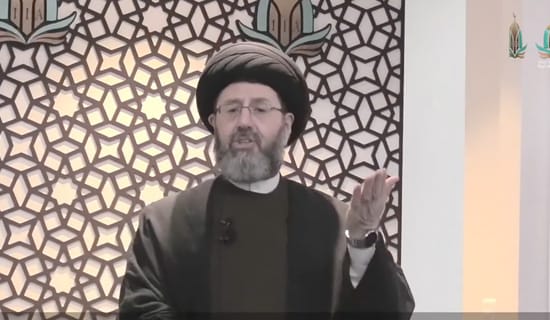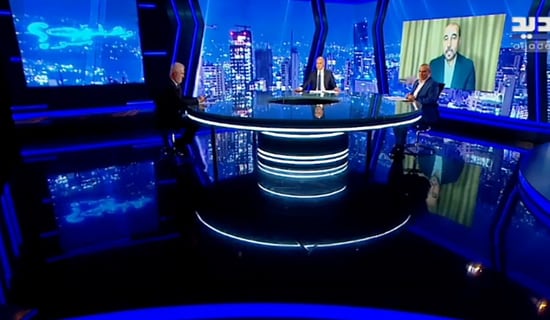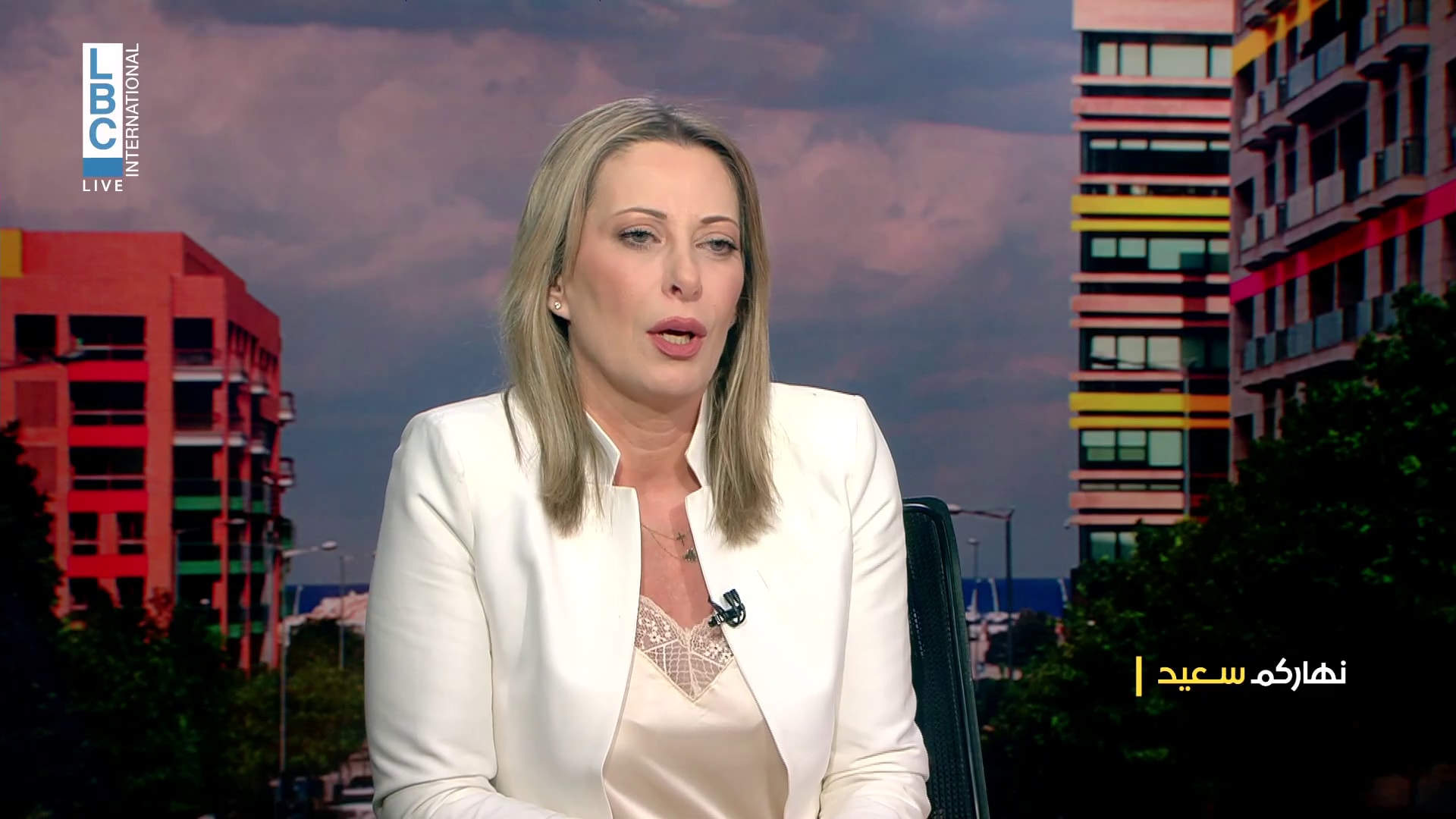
Following are excerpts from an interview with Iraqi MP Iyad Jamal Al-Din, which aired on Al-Arabiya TV on June 26, 2009:
Interviewer: Are you a secular person in Islamic clothing, or are you a Muslim employing secular discourse?
[...]
Iyad Jamal Al-Din: First of all, I am neither Islamic nor secular.
Interviewer: You are not an Islamic person?
Iyad Jamal Al-Din: No, I'm not. First of all, secularization cannot be used to characterize a person. It characterizes a political regime. A person cannot be characterized as secular or non-secular.
[...]
I have read the Koran, and I have not found the adjective "Islamic" there. The Koran contains the words "Muslim," "believer," "polytheist," and "hypocrite," but "Islamic" is not to be found anywhere in the Koran.
[...]
There is no clear distinction between the terms "Islamic" and "Muslim." I call myself a Muslim – I bear witness that there is no god but Allah, and Muhammad is His messenger.
Interviewer: You mean this is the term found in the Koran, not "Islamic."
Iyad Jamal Al-Din: Those who use this new term – "Islamic" – did not define its meaning. What distinguishes it from the word "Muslim"? Many people feel insulted when they are called non-Islamic – as if it's a curse – but I am proud not to be Islamic, because I don't know what it means. I know what "Muslim" means – it is someone who recites the two shahadas.
Interviewer: Did the term "Islamic" appear along with the political Islamic movements?
Iyad Jamal Al-Din: Yes. This term appeared following World War II to refer to political Islamic movements. These are political movements that use religion as a ladder to rise to power, just as some political parties use money, the media, weapons, or militias as a ladder to rise to power.
[...]
We are people who aspire to power. We agree upon a political platform and we convince the voters by saying: "If you vote for us, we will do this and that." Either we will say the truth, or we will lie. But saying: "Vote for us, so we can teach you how to pray," or "vote for us, so we can show how to flagellate yourself properly over the death of Hussein" – this is inconceivable nonsense. It makes a mockery of the people.
[...]
In our view, sectarian quotas run counter to human rights, and constitute a disgrace to humanity. Do you consider yourself a Shiite more than an Iraqi, or vice versa? I consider myself, first and foremost, a human being and a citizen. In my view, Iraqi citizens come first, not Iraq, because Iraqis are more valuable than Iraq.
Interviewer: Yes, people are more valuable than land.
Iyad Jamal Al-Din: People are more important than time and place. People's primitive instincts, their instinct of fear, is aroused when one says: "As a Shiite, you are oppressed," "As a Sunni, you are in danger," “As a Kurd, you are deprived of your rights"... This makes a mockery of the people.
Interviewer: Especially since everybody is doing this – the Shiites, the Kurds, and the Sunnis.
Iyad Jamal Al-Din: Exactly. We talk about the rights of Iraqi citizens. There is no difference between the poor – whether Kurdish, Sunni, Shiite, or Christian. As for the issue of minorities... When you classify people as Shiites, Sunnis, Kurds, Turkmen, and so on, you are destroying [the notion] of an Iraqi person.
Interviewer: Why?
Iyad Jamal Al-Din: Because then you start calling for the rights of imaginary groups, not individuals. You are not calling for the rights of Shiite individuals, but of the Shiite nation.
[...]
Interviewer: From 2003 – perhaps for the first time in 1,400 years – Iraq is ruled by the religious. How would you sum up this return to power?
Iyad Jamal Al-Din: It has been a miserable and bleak experience. We have seen nothing but growing poverty, despite the abundance of money. Services are in a bad way, even though Iraq has opened up to the whole world. The public coffers are being plundered like never before in history.
[...]
Will Hizbullah make do with confronting Israel and liberating the land, or does it have another agenda – that of a vast, religious, Islamic state? That is the question. There are sacred slogans, such as the liberation of Palestine and of Jerusalem, and the Palestinian cause. For a long time the tyrants have been living in the shadow of these slogans, and the Arab peoples have been suffering oppression, as a result of the Palestinian cause. The Palestinian cause is the pretext for the lack of political and economic development. When liberties are denied – it is because of Palestine. When Saddam Hussein oppresses the Iraqi people for 35 years – it is in the name of Palestine, because "no voice is louder than the sound of battle." Hizbullah is using the same exact "sacred" slogan as well. It uses the Palestinian cause just like any other political power.
Interviewer: Using it?
Iyad Jamal Al-Din: Yes, because only Allah knows one's true intentions. Saddam attacked Israel with missiles – 38 missiles, I think. Gamal Abd Al-Nasser fought [Israel], for 50 years, Qadhafi has been shouting in the name of Palestine, and all the Arab rulers speak in the name of Palestine. But look at the state the Arabs are in. Look at the state of the Arabs in Palestine – the Arabs living within the 1948 Green Line...
Interviewer: Does Hizbullah bear responsibility for the problem of development in the Arab world?
Iyad Jamal Al-Din: Others share this responsibility. It is not the only one that fought for Palestine. Hizbullah was founded in 1982, and Palestine was lost in 1948. From 1948 to Judgment Day – I don't know how long this conflict will last. There are people who raise the banner of Palestine, yet oppress their people in the name of Palestine. People like Saddam say they will liberate Palestine, but lose their own homes. He said he would liberate Palestine from the Jordan River to the Mediterranean Sea, and then he lost Iraq in its entirety. The slogan of Palestine is an enticing but deceiving slogan. It is enticing because any thief, smuggler, or liar can claim to be liberating Palestine, and history will sing his praises.
[...]
Interviewer: Do you think that Hizbullah is using the slogan of Palestine as a cover for its political agenda?
Iyad Jamal Al-Din: Undoubtedly, in my opinion. As I said, anyone can use the Palestinian cause. Show me one Shiite Lebanese – although I don't have the right to intervene in Lebanese affairs, because the people in that country are free... But is there any voice among the Shiites in Lebanon other than the voice of Hizbullah and its ilk? Aren't there any intellectuals? Why is someone like Ali Al-Amin oppressed – and he is just one person, with no political party, militia, newspaper, radio, or TV station behind him? He does not constitute a threat. He just has an opinion. They burned down his house and his office. Isn't that a disgrace?













